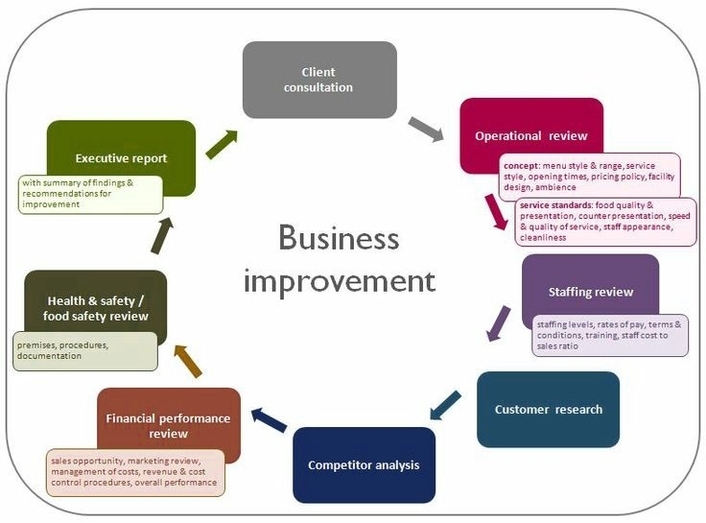
Business Performance Improvement, or BPI, is a strategy to help organizations achieve better results and growth by modifying their processes or procedures. BPI can be applied to both routine and non-routine work, depending on the goals and challenges of the organization. BPI can also help employees improve their skills, productivity, and behavior, as well as create a positive company culture.
ome examples of BPI methods are:
– Business Process Reengineering: This involves redesigning the entire process from scratch, eliminating unnecessary steps and streamlining the workflow. This can lead to significant cost savings and efficiency gains, but also requires a lot of resources and commitment.
– Lean Six Sigma: This combines the principles of lean manufacturing and six sigma, which aim to reduce waste and variation in the process, respectively. This can improve the quality and reliability of the output, as well as customer satisfaction.
– Kaizen: This is a Japanese term that means “continuous improvement”. It involves making small, incremental changes to the process, based on feedback and data analysis. This can foster a culture of innovation and learning, as well as employee engagement.
